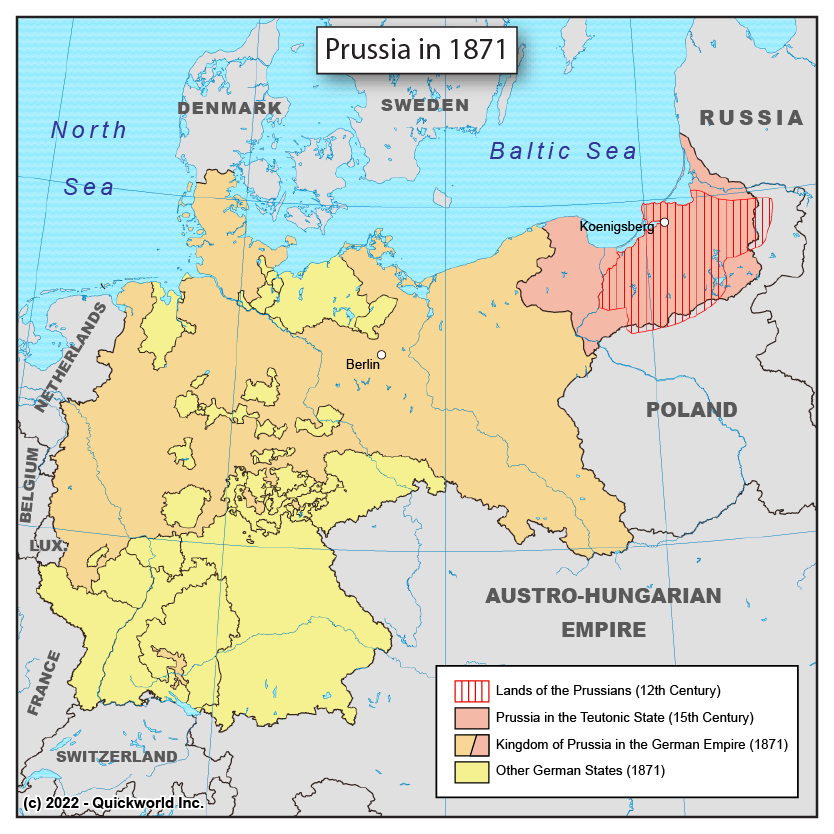Our "What's in a name" Series takes us to Prussia, a name that came to represent vastly different entities over time.
The area on the Eastern edge of the Baltic Sea, populated with tribes commonly referred to as Baltic, was the last region of Europe to be christianized, and as such fell under the control of Teutonic (i.e., German) Knights. The germanization of the area would last until the early 20th Century, with the rise of a German nobility among the local tribes: Prussians, Latvians, Livonians, etc.
A next step in integration is when the Prince of Brandenburg, in Eastern Germany, assumed the title of King of Prussia, although he was not allowed to use while within the German Empire, where the Emperor was king of all the Germans, as well as King of Bohemia, the only two royal titles.
This semantic oddity, of a "King in Prussia" rather than "King of Prussia" did not stop the word "Prussia" to gradually impose itself as the land of one of the most formidable dynasties in German history. By the 19th Century, that dynasty controlled territories all the way to the Rhineland, on the border with the low countries and France. What was then known as Prussia was therefore much larger than the initial land of the Prussians. These, incidentally, were by then fully germanized, and the old Prussian language was lost entirely.
Prussia


